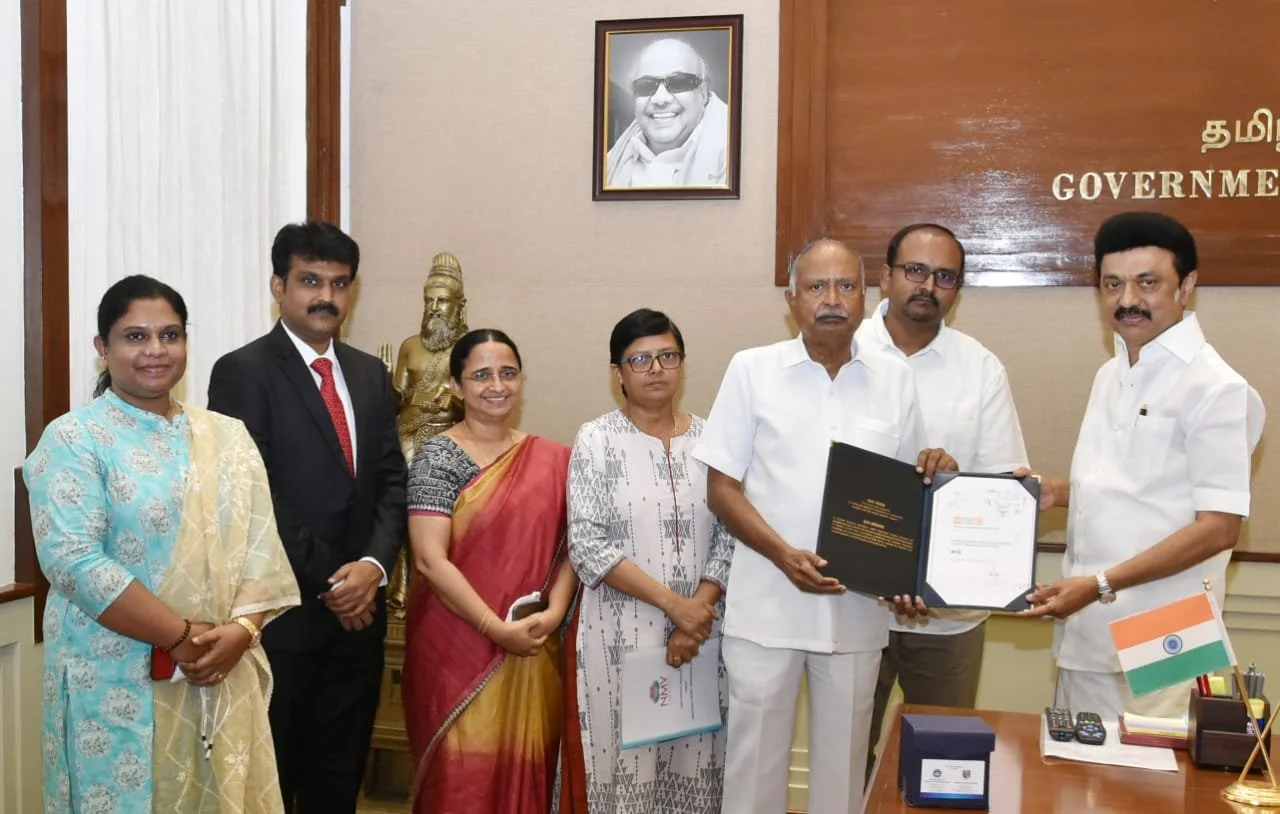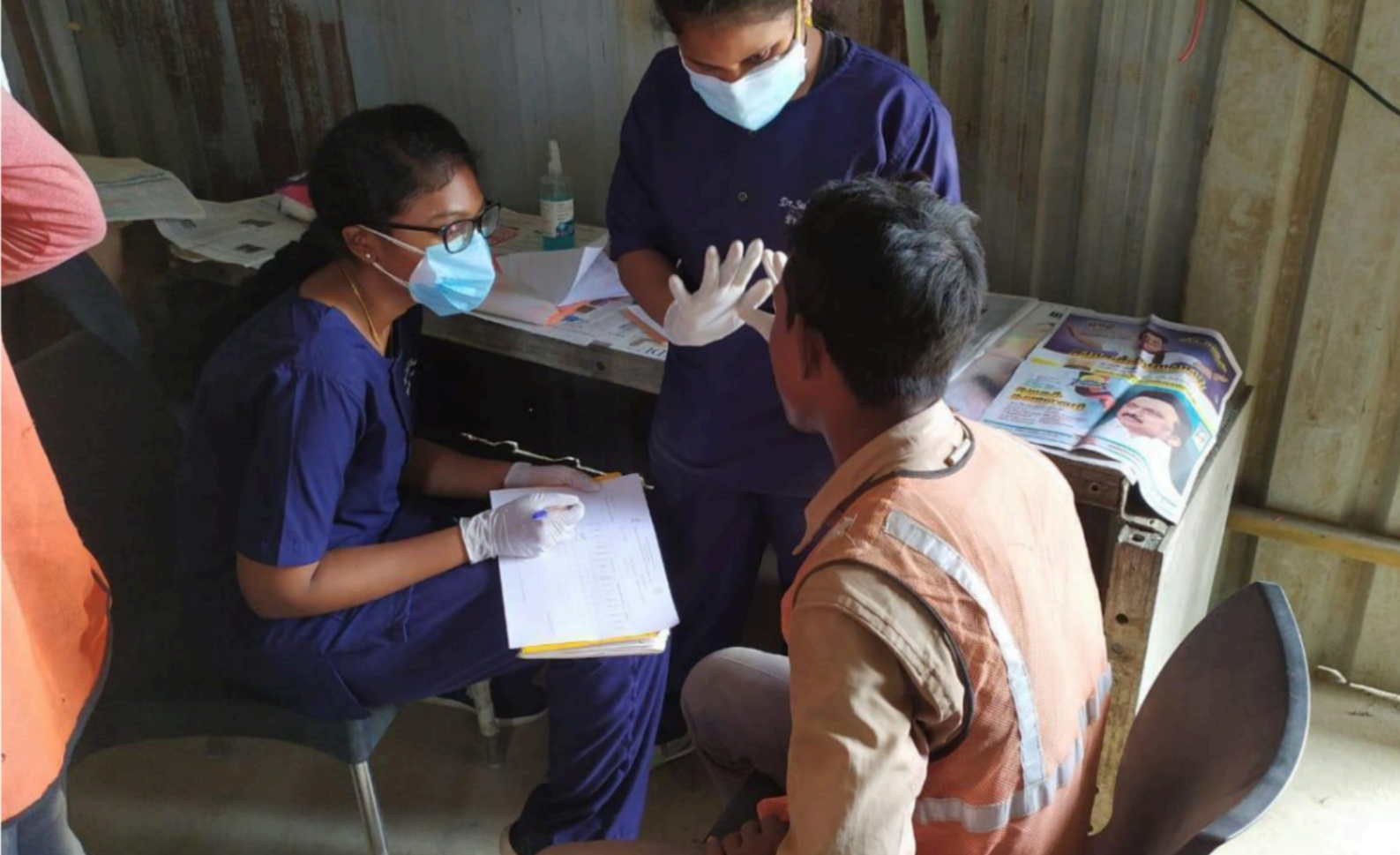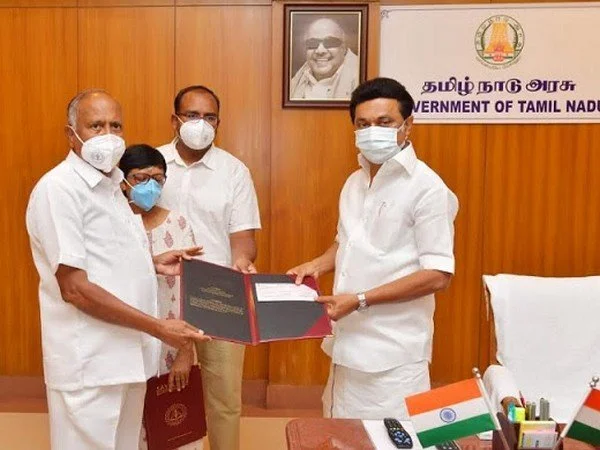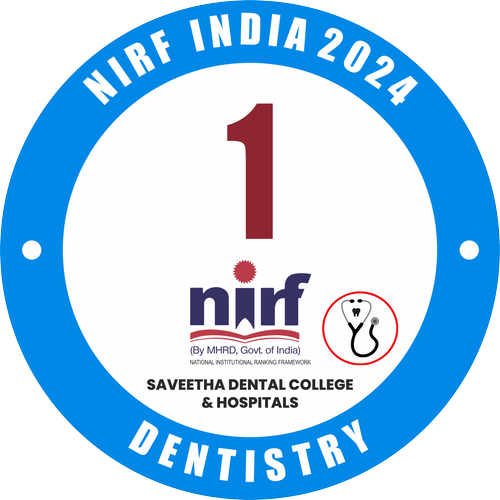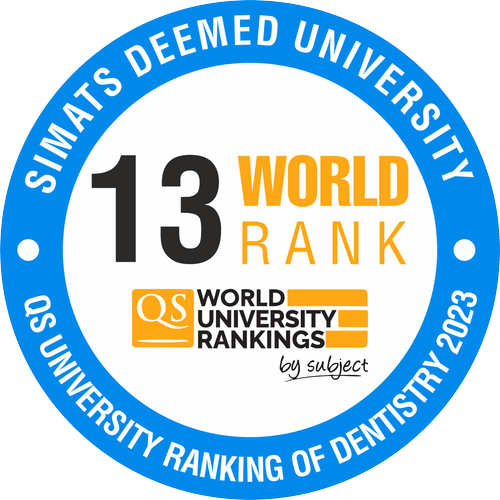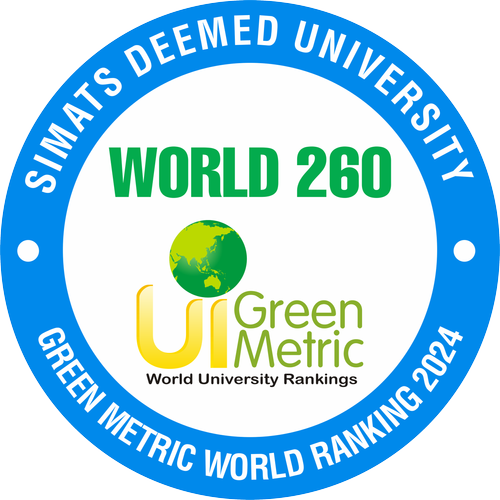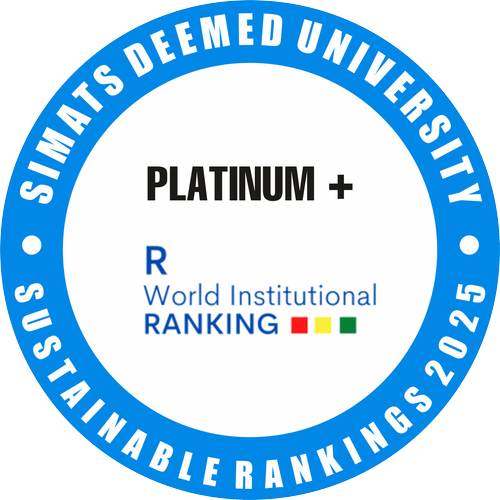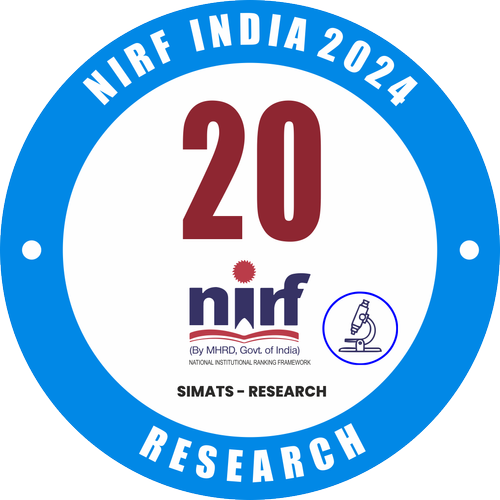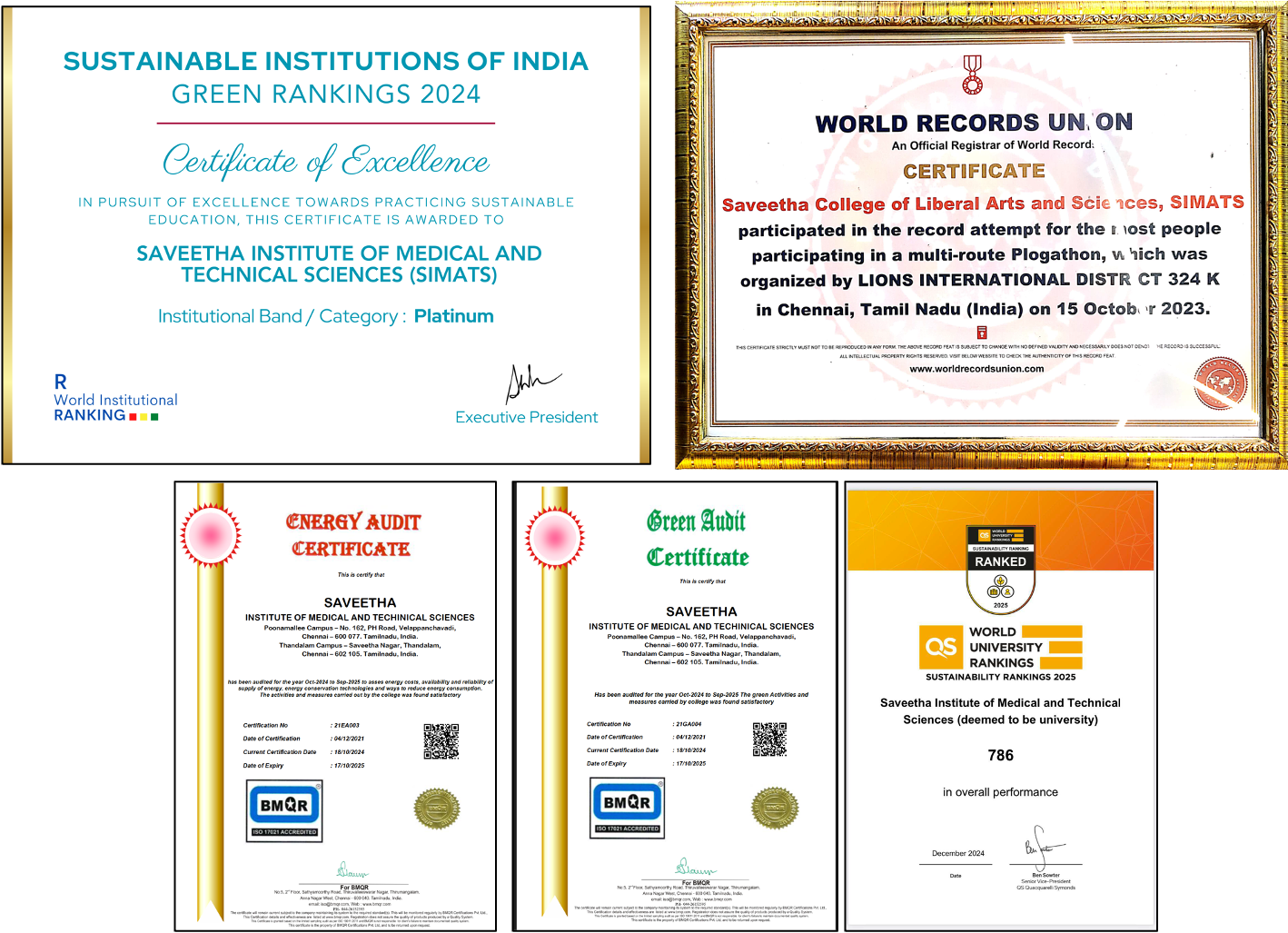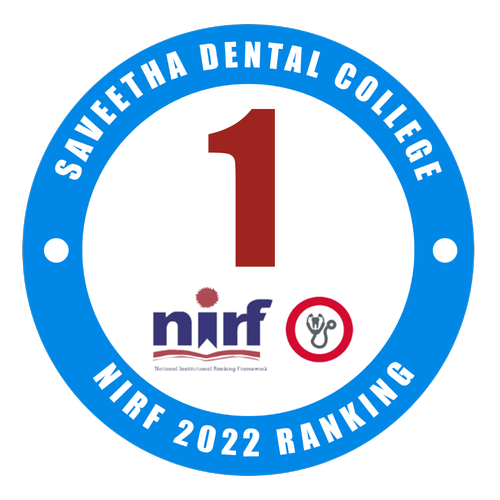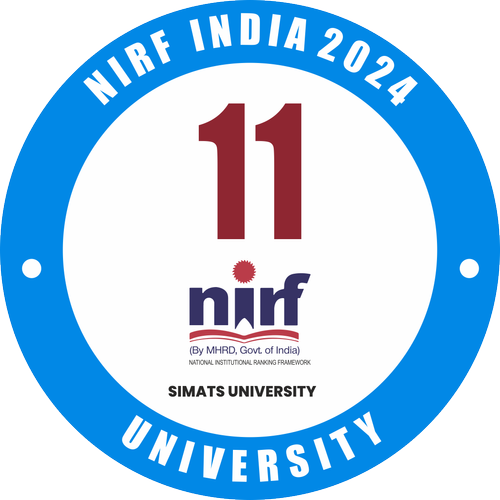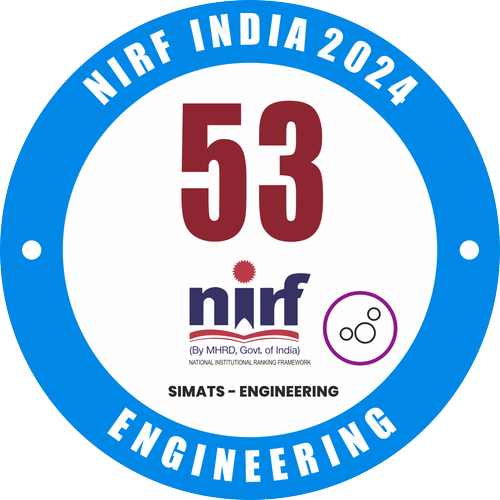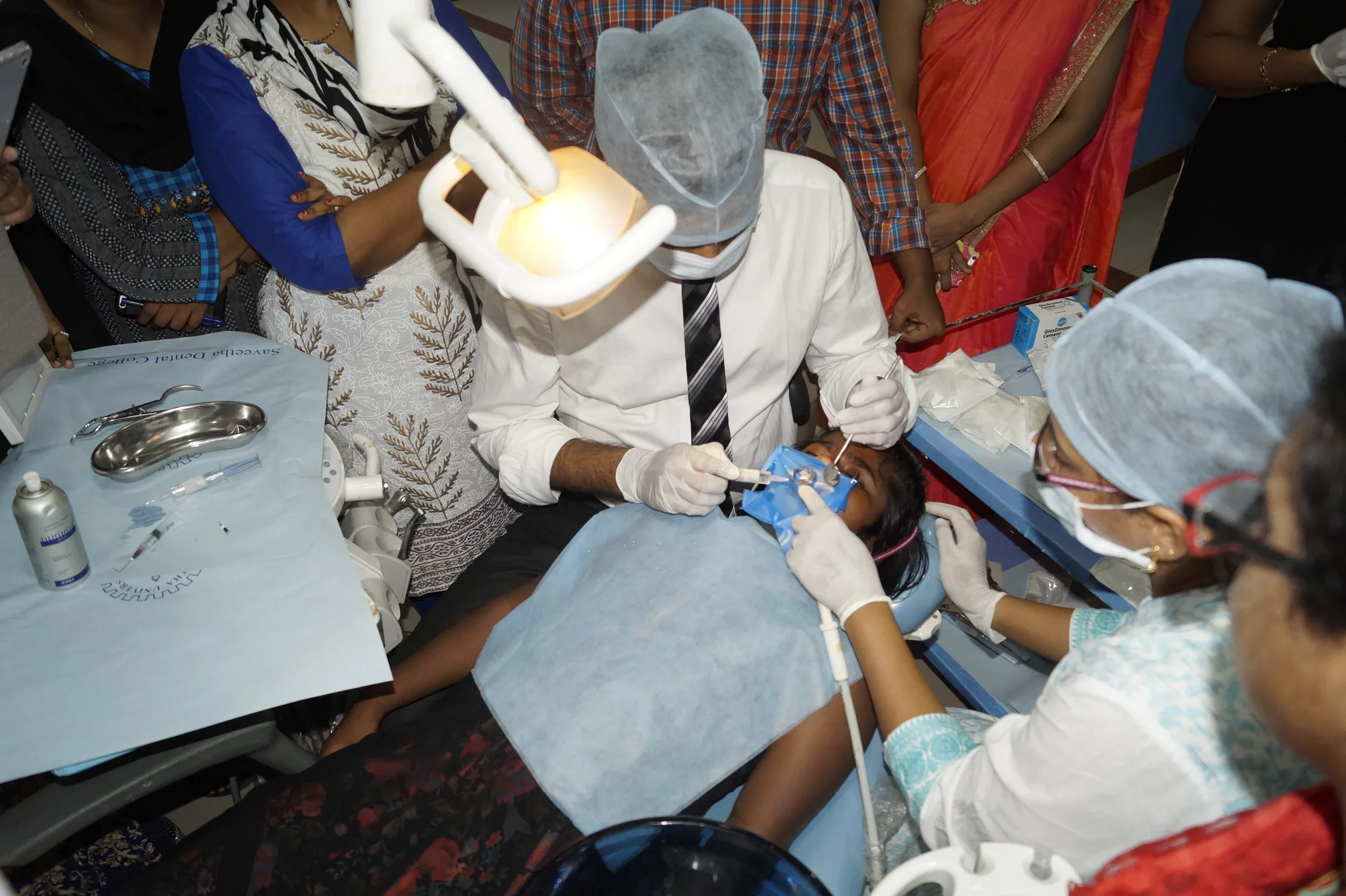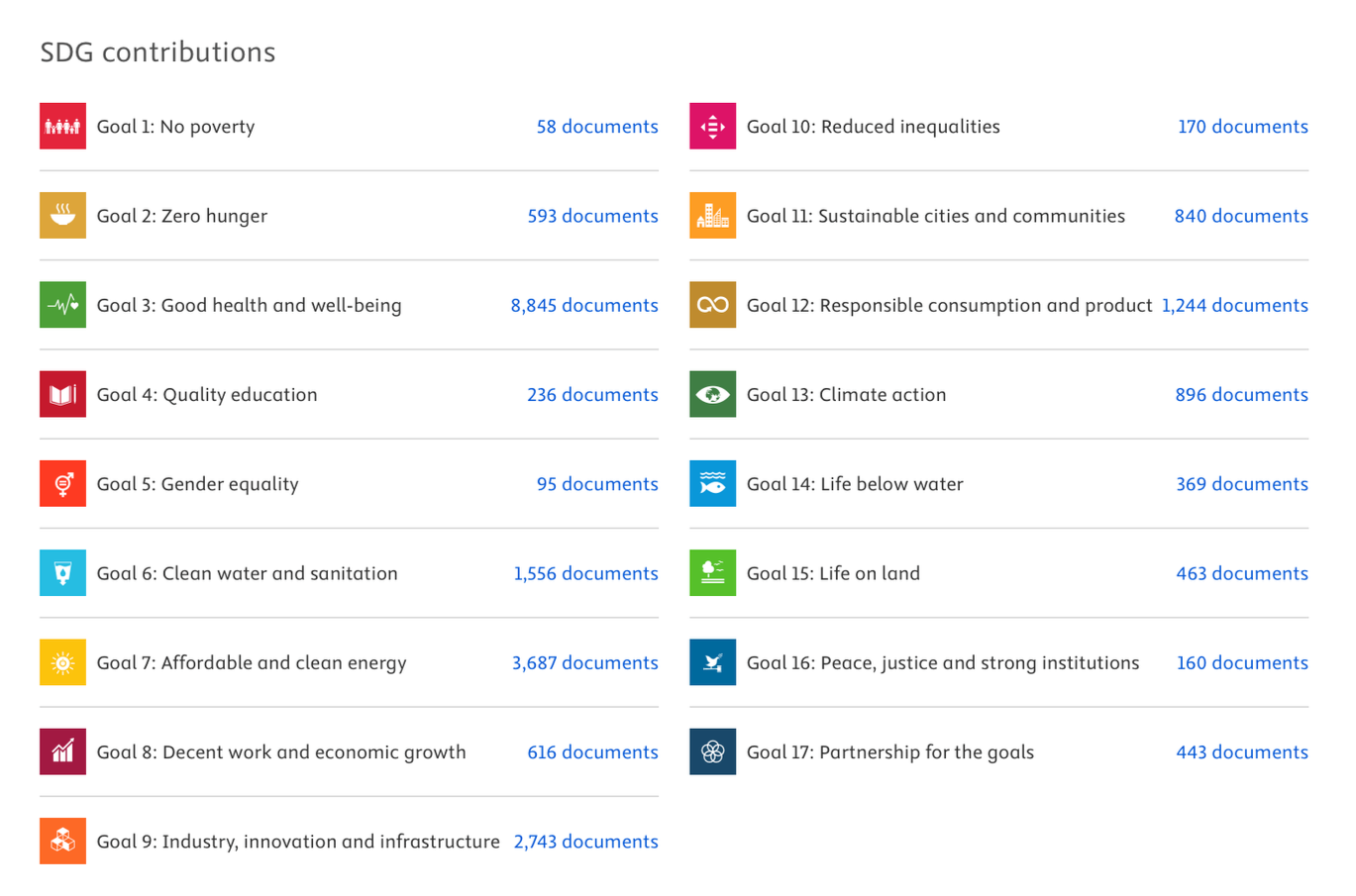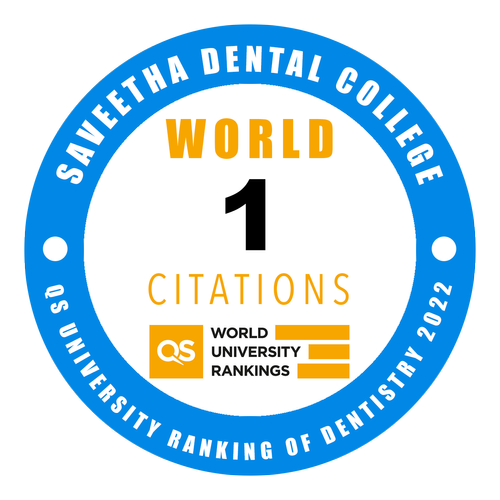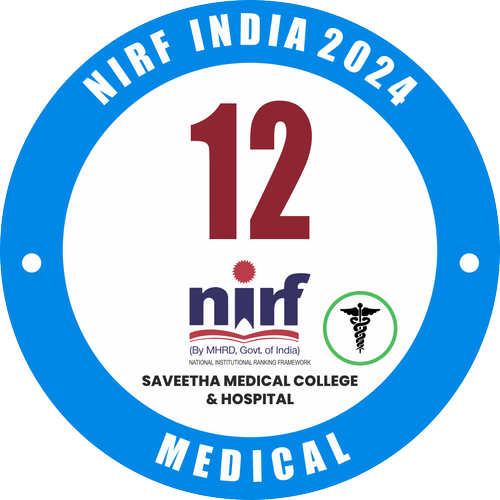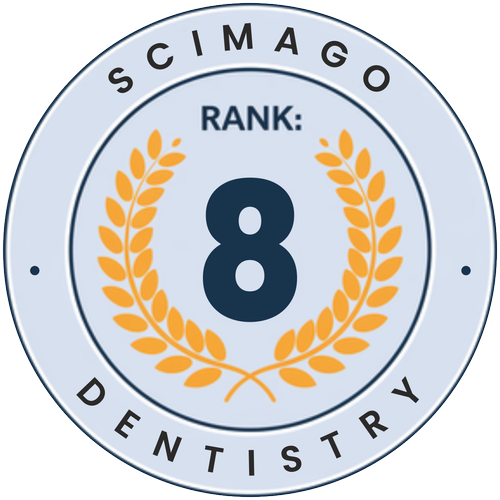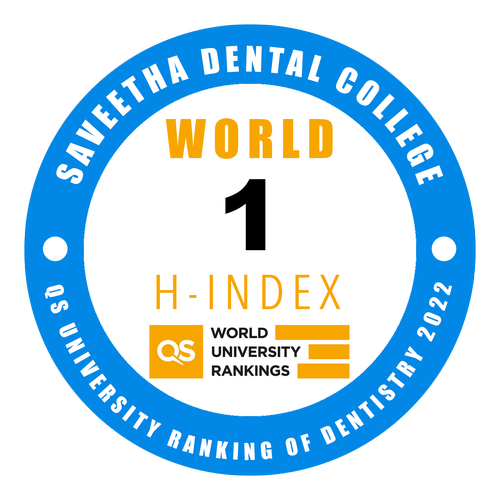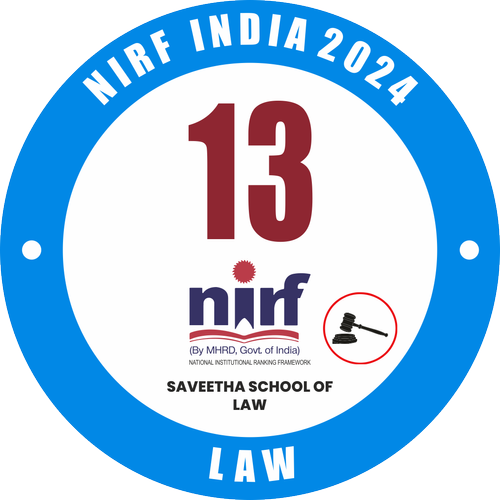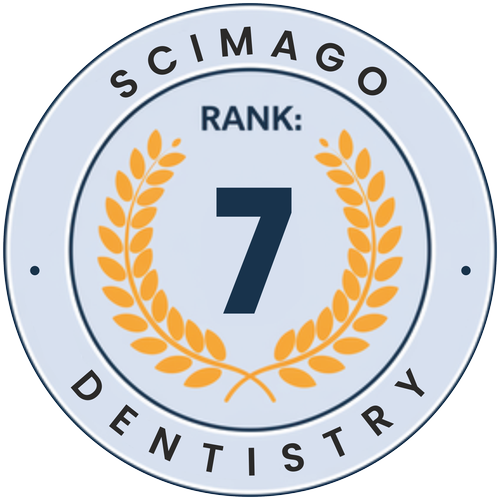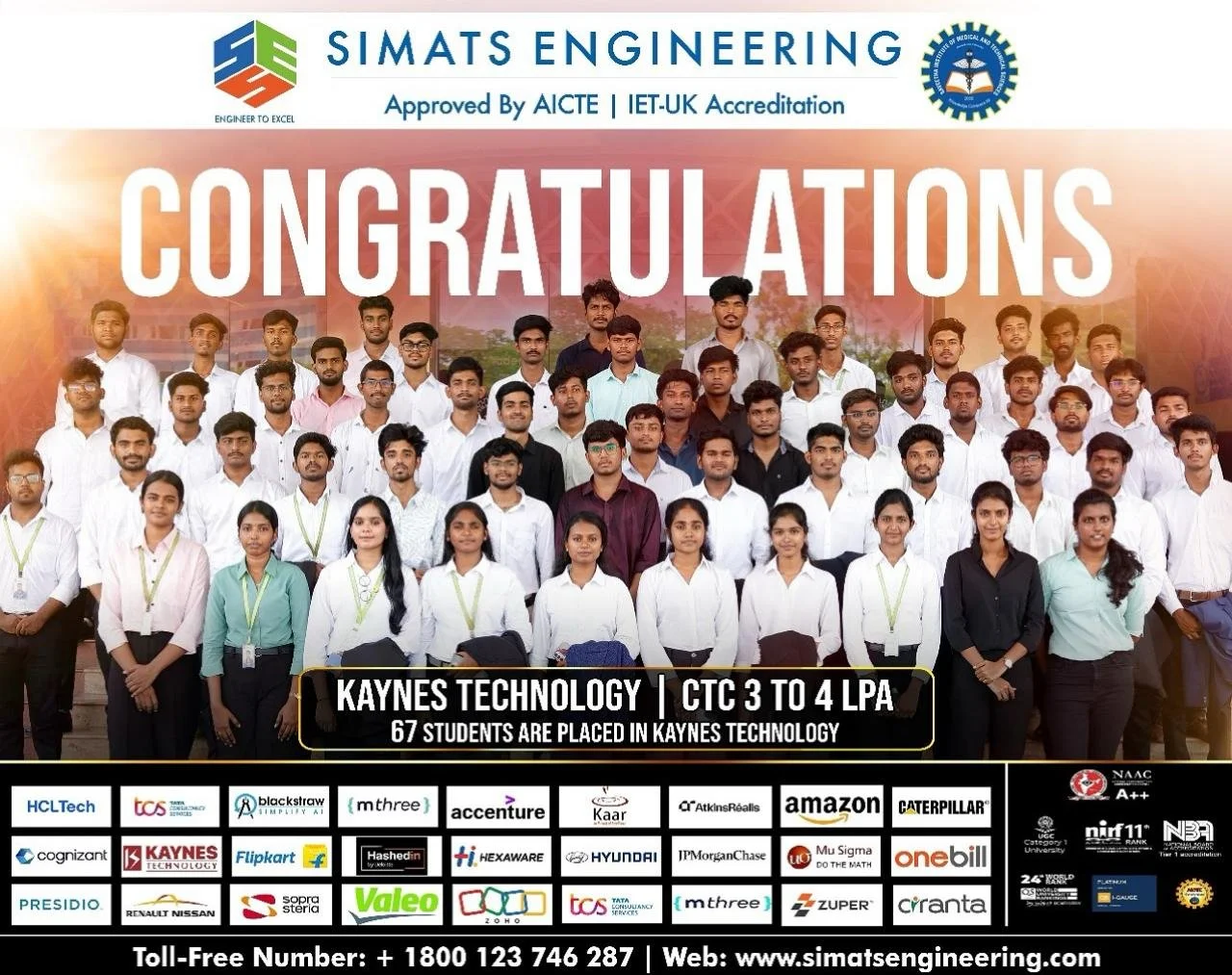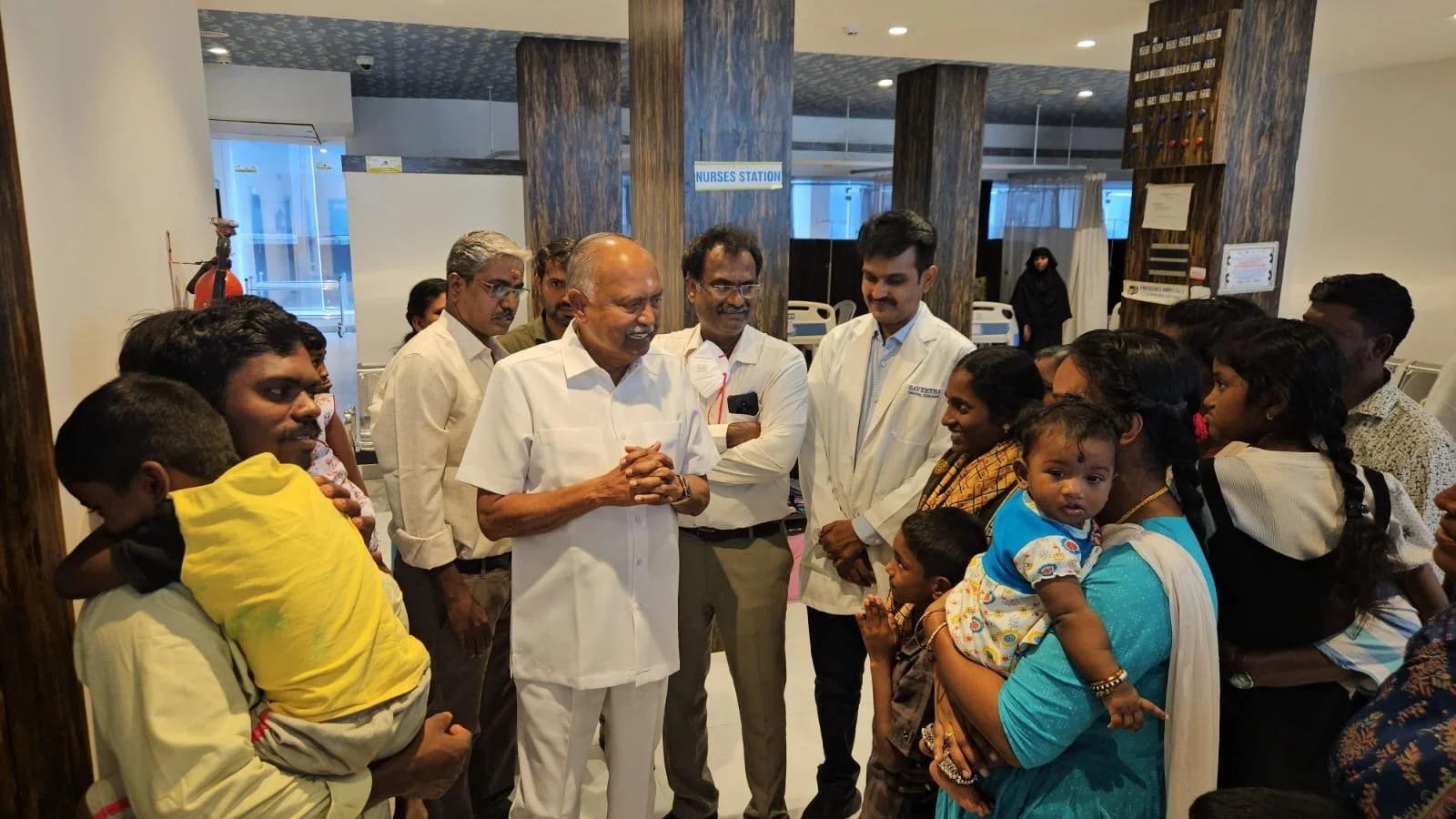“Transforming Lives Through Healthcare, Education, and Community Service”
Under the visionary leadership of Dr. N. M. Veeraiyan, SIMATS has become a catalyst for change—delivering world-class healthcare, advancing education, and empowering communities through impactful initiatives that touch millions of lives.
Education and Academic Excellence
Community Development & Social Welfare
Education & Academic Excellence
The comprehensive academic and clinical reforms introduced at SIMATS have transformed the institution into one of India’s most research-intensive and practice-oriented universities. The Multiple Interactive Learning Algorithm (MILA) has revolutionized classroom engagement by integrating micro-lectures with interactive activities such as quizzes, puzzles, and peer-led discussions. This has significantly enhanced critical thinking, problem-solving skills, and conceptual clarity, while fostering creativity and student participation. Experiential learning through hands-on training, workshops, collaborative projects, and integrated classroom-laboratory environments ensures that students graduate with advanced clinical competence. The structured module-based postgraduate curriculum and rigorous dual evaluation system—combining internal continuous assessment and external benchmarking—have elevated academic standards, producing globally competitive specialists. The Comprehensive Clinic Model has simultaneously improved patient care and student training. By offering holistic, one-stop multidisciplinary treatment, patient volume has increased tenfold, enhancing both service quality and institutional revenue. Graduates now complete over 2000 clinical procedures during their course, compared to the national average of 200, positioning them as highly skilled practitioners from day one. Implementation of Entrustable Professional Activities (EPAs) has bridged the gap between competency-based education and real-world clinical practice, ensuring patient safety, faculty accountability, and measurable skill progression. This approach has cultivated a feedback-driven learning culture and improved mentorship quality.
Research integration into education, coupled with interdisciplinary and transdisciplinary approaches, has resulted in over 1072 SCOPUS-indexed publications on higher education methods, solidifying SIMATS’s leadership in academic innovation. Choice-based credit systems and interdisciplinary projects encourage entrepreneurial thinking, sustainable design, and community-focused solutions, particularly in architecture and allied disciplines. The collective outcome of these initiatives is reflected in top NIRF rankings, high employability, increased STEM leadership among women, and strong representation in professional sectors. SIMATS graduates emerge as ethical, research-driven, globally aware professionals equipped with clinical excellence, innovation capability, and leadership skills—well-prepared to address complex real-world challenges in healthcare, law, architecture, and beyond
Curriculum Innovation
Scholarships
Health Care Impact
At SIMATS, scholarships and stipends during learning through Earn while learn scheme are more than financial aid—they are an investment in future leaders and innovators. By removing economic barriers, students have been able to focus fully on academics, skill development, and industry exposure rather than financial survival. This freedom has enabled them to participate in internships, research projects, workshops, and competitions that build strong portfolios for employers. The result is a pool of confident, well-prepared graduates who not only excel in interviews but also adapt quickly in the workplace. Scholarships also attract high-calibre talent to the institution, enhancing overall academic quality and further boosting placement outcomes. Today, SIMATS graduates are securing positions in top-tier hospitals, research institutes, corporate firms, and global organizations—proving that financial support in education translates directly into professional success and long-term employability.
The STAR Summit and associated research initiatives at SIMATS, driven by Dr. N. M. Veeraiyan’s vision, have created a powerful ecosystem for academic excellence, interdisciplinary collaboration, and innovation. Over the years, thousands of undergraduate and postgraduate students across disciplines—including medicine, dentistry, law, physiotherapy, management, and allied sciences—have presented high-quality research, resulting in hundreds of publications in Scopus-indexed journals and the acquisition of research grants exceeding ₹191 crores. Equipped with advanced infrastructure such as molecular biology labs, nanomedicine facilities, 3D printing units, and simulation centers, students and faculty have been empowered to conduct cutting-edge research, engage in translational projects, and develop patents and novel technologies. The summit’s structured mentorship and expert evaluation from industry leaders and eminent academicians have enhanced students’ analytical, presentation, and problem-solving skills, while fostering confidence, innovation thinking, and professional networking. These initiatives have significantly increased SIMATS’s research visibility, attracted industry partnerships, CSR support, and investor interest, and established the institution as a hub for impactful research and innovation. By bridging academia and industry, and encouraging early exposure to competitive research, the STAR Summit has nurtured a new generation of clinician-scientists, innovators, and thought leaders who are well-equipped to drive advancements in healthcare, law, technology, and societal development.
Health Care Impact
Under the transformative leadership of Dr. N. M. Veeraiyan, SIMATS has evolved into a comprehensive, multi-specialty healthcare ecosystem, delivering world-class medical, dental, and allied health services while making them accessible to all sections of society. The institution houses broad and super-specialty integrated clinics supported by advanced facilities, elite wards, and intensive care units catering to cardiology, neurology, oncology, orthopaedics, nephrology, gastroenterology, dermatology, ENT, plastic surgery, psychiatry, paediatrics, physiotherapy, occupational therapy, dentistry, and more. Specialized units such as Early Intervention Clinics, Cancer Care Centres, Advanced Trauma Care, Organ Transplant Programs, and Microvascular Surgical Units offer cutting-edge treatments and rehabilitation.
SIMATS is recognized for innovative surgical capabilities, including robotic, minimally invasive, and image-guided procedures, alongside pioneering pain management interventions, high-risk obstetric care, neonatal intensive care, and rehabilitation programs. Preventive healthcare is equally prioritized through community outreach, mobile medical/dental units, screening camps, public health education, and school-based wellness programs. Through subsidized or free services, free oral cancer surgeries annually to palliative care, physiotherapy for critical care patients, and specialized therapies for children with developmental disorders — Dr. Veeraiyan ensures that healthcare excellence reaches even the most underserved communities. His approach integrates education, research, and clinical practice, training future-ready healthcare professionals who combine compassion with expertise. The result is a sustainable, patient-centered care model that has transformed SIMATS into a national benchmark for integrated, affordable, and advanced healthcare delivery.
Through the visionary leadership of Dr. N. M. Veeraiyan, SIMATS has conducted an extensive network of community health camps that have directly benefited 63,747 people across Tamil Nadu and other regions. These camps addressed the needs of schools, tribal communities, rural villages, industrial workers, and special populations, ensuring preventive, diagnostic, and curative services reached even the most underserved areas. By combining healthcare delivery, education, and community empowerment, these camps not only treated immediate conditions but also fostered long-term health awareness and preventive care practices, reinforcing SIMATS’s commitment to health for all. This comprehensive model not only addresses immediate health needs but also builds sustainable health-seeking behavior, empowers women and vulnerable populations, and integrates student training into real-world service delivery — making SIMATS a national benchmark in socially accountable healthcare education.
Key highlights include:
School-based CSR programs in Arani–Tiruvannamalai and Anna Nagar reaching 11,783 children, delivering free preventive dental care worth ₹74,290 to 413 beneficiaries.
Rural & tribal inclusion, screening and treating 3,369 tribal residents across Nilgiris, Mundanthurai, Villupuram, and Vellore, and 428 residents in Irungattukottai village.
Geographic scale with 281 camps in Kancheepuram (20,359 beneficiaries), 264 in Thiruvallur (18,587), 54 in Chennai (3,983), and dedicated programs in Vellore, Ranipet, and Manipur.
Women’s health focus screening hundreds for breast and cervical cancers, including HPV-DNA testing for 60 women in tribal communities.
Industrial and institutional health camps for workers in manufacturing units, schools, and special care homes, delivering screenings, education, and treatment to thousands.
Specialized health promotion in nutrition, eye care, oral hygiene, physiotherapy, and traditional Varma therapy to targeted community groups.
Impact of Peripheral Health & Community Outreach Services
Under the leadership of Dr. N. M. Veeraiyan, SIMATS’s peripheral healthcare network and outreach programs have delivered comprehensive, year-round services across rural, urban, and underserved communities, directly benefiting 84,342 people annually.
Key Impact Areas
Primary & Secondary Rural Healthcare
53,214 beneficiaries/year through general OPD, specialist clinics, NCD screening, day care procedures, and inpatient services.
Reduced hospital admissions via early diagnosis, lifestyle counselling, and timely intervention.
Accessible Dental Care in Rural Satellites
11,534 beneficiaries/year at Thirumazhisai and 6,937 beneficiaries/year at Mappedu.
Preventive and therapeutic dental care for underserved populations, reducing advanced oral disease burden.
Specialized Community Health Services
Physiotherapy Services: Mappedu (5,000+ patients/year), Irrungattukottai (3,000+ patients/year), Thirumazhisai (4,000+ patients/year).
Women’s Health Camps: 350 females screened and counselled annually.
Targeted Health Awareness & Screening Programs
Lifestyle Diseases: Diabetes & Hypertension awareness for 40 people/year with free screening and counselling.
Maternal & Child Health:
Well Baby & Infant Welfare Clinics in multiple locations — 122 beneficiaries/year.
Antenatal health education and nutrition programs — 95 antenatal mothers/year.
Communicable Diseases: Tuberculosis awareness for 20 people/year.
Holistic Community Engagement
Integration of health promotion, preventive care, and clinical follow-up.
Student involvement across nursing, dentistry, pharmacy, and physiotherapy, reinforcing skill-based learning while serving the community.
Impact on Government Health Care Initiatives
The active engagement of Saveetha Medical College & Hospital and its allied institutions in a diverse array of government health initiatives has made a profound impact on public health, particularly in underserved and rural communities. By integrating academic learning with community service, students and faculty have contributed significantly to national programs such as the Pulse Polio Vaccination Drive, Sparsh Leprosy Awareness Campaign, Deworming Day, Tuberculosis Awareness, Population Day, Dengue Prevention, and Project Punnagai for tobacco use and oral cancer screening. These initiatives have not only facilitated large-scale immunizations, early disease detection, and effective treatment referrals but have also promoted preventive healthcare practices through targeted awareness drives, role plays, and health education sessions. Active participation in maternal and child health programs, nutritional guidance, and lifestyle disease screening has enhanced community well-being, reduced disease burden, and fostered healthier living habits. Specialized outreach such as home-to-home larva screening for dengue prevention, biopsies for suspected oral lesions, and physiotherapy camps have provided critical services otherwise inaccessible to many. Furthermore, initiatives like the Vaccination Awareness Camp have addressed vaccine hesitancy, improved acceptance, and strengthened trust in public health systems. Through these sustained efforts, Saveetha has not only reinforced the government’s public health delivery mechanisms but has also cultivated a generation of socially responsible, community-oriented healthcare professionals committed to advancing equitable healthcare access and improving overall population health outcomes.
Under the progressive vision of Dr. N. M. Veeraiyan, these pioneering health policies reflect his lifelong mission to make healthcare more preventive, inclusive, and community-driven. The Drafted Oral Health Policy for Poonamallee Blockis a direct extension of his commitment to reducing disease burden at the grassroots level—bringing early detection, timely treatment, and oral health education to over 52,000 residents through schools, PHCs, and community initiatives. At the state level, his leadership in framing the Oral Health Policy for People Below the Poverty Line ensures that even the most vulnerable populations gain access to free preventive kits, dental care, and health education—drastically reducing out-of-pocket expenses while improving overall well-being. Moving beyond oral health, Dr. Veeraiyan’s “Steps to Happiness” National Policy for Physical Activity and Mental Well-being integrates physical fitness with mental resilience, empowering people of all ages to take control of their health through low-cost, sustainable habits like walking and jogging. By weaving these policies into existing national programs, he is shaping a healthcare model that is proactive rather than reactive—one that reduces the strain on medical systems, improves quality of life, and fosters a healthier, happier, and more productive society.
Impact on Funding the Economically Weaker Section
Under the visionary leadership of Dr. N. M. Veeraiyan, Saveetha has redefined compassionate, inclusive healthcare by ensuring that no patient is denied life-saving treatment due to financial constraints. From 2021 to 2025 alone, 18,017 inpatients have benefitted from his initiative to provide a ₹5,000 initial credit, completely free maternity and neonatal care, and nutritious meals three times a day, with a total financial support exceeding ₹85.36 crore. Driven by his mission to restore health and dignity, Dr. Veeraiyan established the Saveetha Cleft and Craniofacial Center in 2018, where 1,216 patients have received free surgeries, hospitalization, and post-operative support worth ₹2.65 crore. His commitment to cancer care led to the founding of the Saveetha Oral Cancer Center, delivering advanced surgical and supportive services worth ₹4.84 crore to 404 patients, giving them renewed hope and a second chance at life. Extending his vision to those living with HIV, the ART Treatment Center under his guidance has provided testing, counseling, antiretroviral therapy, and holistic care to 134 individuals, building a strong foundation for lifelong disease management. Through these pioneering efforts, Dr. Veeraiyan has not only transformed individual lives but has also set a benchmark for socially responsible, patient-centered healthcare in India.
Impact on Industrial and Occupational Health
Under Dr. N. M. Veeraiyan’s mission to take healthcare into workplaces, Saveetha’s industrial outreach has delivered measurable, preventive impact at scale. By integrating ergonomics screening, oral health services, musculoskeletal rehabilitation, and targeted health education directly into factory floors and industrial sites, the initiative bridges the gap between healthcare access and the working population. This hands-on approach not only addresses existing health issues but also fosters a long-term culture of wellness, safety, and productivity among thousands of employees across multiple industrial sectors.
Across factories and SIPCOT units, at least 5,771 workers were directly reached (conservative minimum), including 1,600 through on-site ergonomics and health screening (e.g., 148 at Craftsman Automation–Sriperumbudur, 129 at Big Basket–Kuthambakkam, 109 at SIPCOT–Irungattukottai, 106 at Toshniwal Instruments, 95 at Anu Industries, 92 at Stanley Engineering, 85 at Crowntech, and 82 at International Maritime Academy). Oral-health treatment camps managed the neglected disease burden in the workforce—1,354 workers were served, with marquee drives such as Irungattukottai (422 workers; 180 scalings + 105 restorations), Keevalur (125), Pappankuppam (280 screened), and Wheels India (527 with 154 scalings and 88 restorations). A dedicated program with the Builders Association of India covered 1,685 construction workers over five years, adding oral-cancer screening and focused health education. Musculoskeletal (MSK) prevention clinics added another 847 workers at sites like Surin Automotive and Precision Equipments (each >120 served), plus Korea Fuel-Tech (98 & 86), Kelin India (120), Steel Shopee (132), AJIT Industries (50+), and Foxconn (11). To sustain recovery, Saveetha College of Physiotherapy ran follow-up therapy camps for 285 beneficiaries (e.g., 90 at Pavithra Auto Parts, 52 at Arun Plasto, 45 at Unitech Plasto).
Net effect: documented reductions in untreated dental disease, immediate relief of MSK pain with tailored exercise prescriptions, and tangible ergonomic corrections on the shop floor—all of which cut downtime, improve productivity and safety, and embed a preventive health culture inside the workplace.
Impact achieved by Other Health Care Initiatives
Impact on Environment
The adoption of paperless digital record initiatives such as ARMS, DIAS, MIAS, SIMATS 360, and LIFE.SAVEETHA.COM has significantly reduced the environmental footprint of academic and healthcare operations at Saveetha Institute of Medical and Technical Sciences (SIMATS). By eliminating the need for extensive paper-based documentation in academic records, clinical notes, faculty management, and campus services, the institution has reduced paper consumption by thousands of sheets annually, thereby conserving trees and decreasing deforestation pressure. In addition, the reduction in printing, photocopying, and physical storage requirements lowers electricity usage and cuts down greenhouse gas emissions associated with paper production, transport, and waste disposal. The digitization of food ordering and other daily campus services through LIFE.SAVEETHA.COM also minimizes the need for disposable tokens, printed menus, and receipts, further decreasing solid waste generation.
These initiatives collectively promote resource conservation, waste reduction, and sustainable operations, aligning SIMATS with global environmental responsibility goals. The shift to a fully integrated, digital-first ecosystem not only fosters operational efficiency but also exemplifies eco-conscious leadership in higher education and healthcare.
Guided by the visionary leadership of Dr. N. M. Veeraiyan, Saveetha Institute of Medical and Technical Sciences (SIMATS) has embraced a future where environmental stewardship and academic excellence go hand in hand. Rooted in his belief that educational institutions must lead by example, SIMATS has transformed its campus into a model of green innovation — planting 10,000 saplings to create a living, breathing carbon sink, and harnessing 1,200 kW of clean energy from wind and solar power to drastically cut greenhouse gas emissions. These initiatives are not mere symbolic gestures, but part of a long-term, measurable commitment to combat climate change, enhance biodiversity, and inspire students to become custodians of the planet. Under Dr. Veeraiyan’s mission, the campus itself has become a living classroom — where sustainability is learned, lived, and scaled for impact far beyond its walls.
10,000 saplings planted: using a conservative 10 kg CO₂ sequestration per tree per year, that’s ≈100 tonnes of CO₂ captured annually (and up to ≈220 tonnes/year as trees mature). Added wins: cooler micro-climate, better storm-water absorption, habitat for urban biodiversity, and lower dust/PM levels on campus.
1,200 kW of wind + solar (installed capacity): assuming a 25% average capacity factor for the mix, that’s ≈2.63 million kWh of clean electricity per year, avoiding ≈1,840 tonnes of CO₂ annually (at ~0.7 kg CO₂/kWh grid intensity). That’s roughly the electricity use of ~2,000 homes or taking ~400 cars off the road each year.
Together, the green power + trees deliver ~1,940–2,060 tonnes of CO₂ benefit every year (generation avoided + tree capture), while improving campus air quality, heat resilience, and serving as a living lab for students and researchers.
These initiatives have inspired a wave of SDG-focused research output, with faculty and students producing high-impact publications on renewable energy adoption, carbon footprint reduction, biodiversity enhancement, and community-driven environmental health. The integration of sustainability metrics into research has strengthened SIMATS’s performance in SDG 7 (Affordable & Clean Energy), SDG 11 (Sustainable Cities & Communities), SDG 13 (Climate Action), and SDG 15 (Life on Land).
The documented environmental outcomes have been cited in policy briefs, interdisciplinary research articles, and conference proceedings, contributing directly to the institution’s visibility in global SDG-related rankings. This alignment of practical action with scholarly output reinforces SIMATS’s identity as a research-led, socially responsible university, bridging the gap between environmental activism and academic excellence. These sustained efforts have: Elevated SIMATS in national and global sustainability rankings such as QS World University Rankings: Sustainability, UI GreenMetric, and NIRF innovation and inclusivity indicators. Positioned SIMATS as a benchmark in eco-conscious higher education in India, attracting partnerships, collaborations, and recognition from environmental and educational bodies. Served as a living laboratory for sustainable development, inspiring thousands of students to adopt and champion eco-friendly practices in their professional and personal lives.
Dr. Veeraiyan’s unwavering commitment to environmental stewardship has not only transformed the campus landscape but also solidified SIMATS’s reputation as an institution where academic excellence thrives alongside ecological responsibility — proving that sustainability is not a choice, but a legacy.
Benchmarking Excellence: National & International Rankings
Earn While learn scheme

